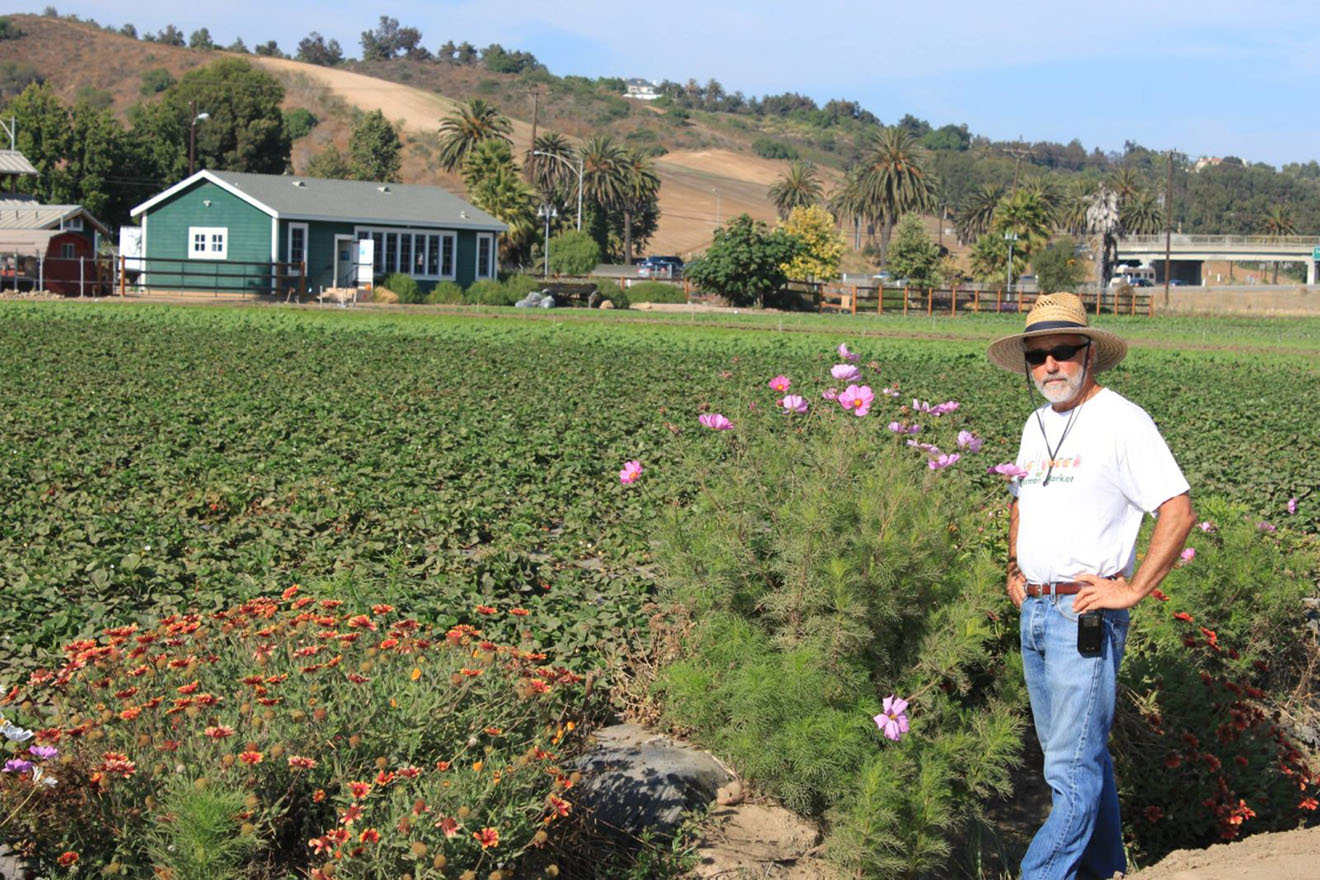Farming for the future and salvation in the soil
By Marianne Landzettel
Phil McGrath is farming for the future.
He represents the fourth generation of McGrath family farmers, cultivating a small piece of land his great-grandfather acquired in the late 1860s.
While a much larger part of the family land has been leased to a commercial grower, McGrath, 70, took a different route.
He divided his 30-acre piece in the Oxnard Plain in Ventura County, California, into 5 acre plots, intended for growers interested in cultivating certified organic food that’s culturally relevant to their families. The farmers use a wide variety of techniques, from Korean Natural Farming to Soil Food Web studies. Most of those involved are former farmworkers who had previously lacked access to land.
McGrath grows mostly in-season organic strawberries on the four acres he farms. The berries are planted in fall and harvested in spring. Some of his out-of-season strawberries are available throughout fall. (To find more farms growing soil-grown berries, consult Cornucopia’s Organic Berry Map.)
Managing water is a constant priority. In compliance with the state’s Sustainable Groundwater Management Act, Oxnard Plain’s water district is tasking farmers with reducing their water consumption by 40% over 20 years. “We cannot keep doing things the way we have done in the past,” McGrath says.
A drip irrigation system waters the roots of his soil-grown strawberries, while micro sprinklers deliver the precise amount of water that’s needed above ground. “You cannot irrigate more efficiently than this,” he says.
In his search for more solutions, he has partnered with the Rodale Institute. As the satellite location for the Rodale California Organic Center since 2019, McGrath Family Farm is pioneering new, sustainable ways of growing strawberries. (The farm is working towards becoming Regenerative Organic Certified.)
Last year McGrath tested planting cover crops on his strawberry beds. He flattened the cover crop with a roller-crimper, an efficient tool that gives his cover crops a second life as a medium for his strawberries. Instead of using plastic for weed suppression and moisture conservation, McGrath now plants his strawberries directly into the thick mat of cover crop residue. “And we work a lot more with composting,” he says. “Our results have been really good, and in my mind, this is the only way forward.”
Compost applications and cover crops not only improve soil quality and fertility — healthy soil can also store more moisture. When the rainstorms started in January, many farms were flooded within days. “For weeks, the soil on our farm soaked up the rain like a sponge,” he says.
To McGrath, true sustainability in fruit and vegetable production includes ensuring the well-being of everyone working on a farm. The farm has been certified organic since 1995, in part because McGrath recognized the health risks that agrochemicals pose for farm workers. It took another 10 years until methyl bromide, a pesticide that was particularly popular among strawberry growers, was banned in California, the state that produces 90% of US strawberries.
A planned food hub may help get organic food on the tables of more low-income families. It will also tackle another obstacle to farming — due to exorbitant housing in Ventura County, some of the growers live in on-farm mobile homes. “We are working on a master plan that would be centered around the food hub concept and more farmworker housing,” McGrath says. “If all goes right, we will soon have a farm center based on education and local food distribution.”
Each of those initiatives is guided by an eye on the future. McGrath comes from a family of 10 and soon there will be a seventh generation entering farming. He plans on helping them, along with subsequent generations of McGraths, the best way he can: by looking after the soil and farming with nature.


